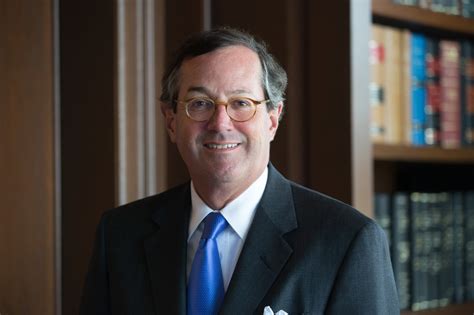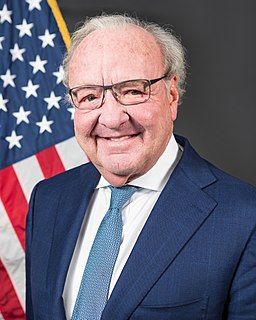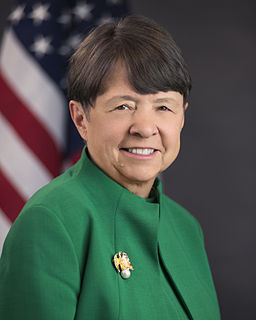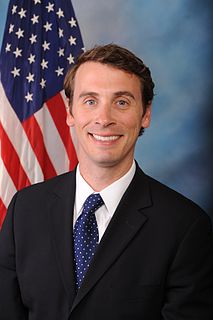A Quote by Warren Stephens
We've always been modestly leveraged, and we've never believed in a great deal of leverage on either our private equity business or on our investment banking business. And I think it really goes back to my uncle and dad growing up in the Depression and just seeing what happened to people who were overly levered.
Related Quotes
Nobody in my generation ever started out in private equity. We got there by accident. There was no private equity business - actually, the word didn't even exist - when I started. I got there out of the purest of happenstance and so I think many people find what they really enjoy doing just in that way. So another piece of advice for you is: don't worry too much about what you're going to be doing when you get out of business school - life will come your way.
As a matter of fact 25% of our U.S. investment banking business comes out of our commercial bank. So it's a competitive advantage for both the investment bank - which gets a huge volume of business - and the commercial bank because the commercial bank can walk into a company and say, "Oh, if you need X, Y and Z in Japan or China, we can do that for you."
But what we know, we who are either observers of a business we once were in and loved, or are people within it now, our business as a whole, when it is not obsessed with the business of business, is eaten up with a form of cultural conservatism which is truly amazing. Indeed, more often than not it is eaten up with pure reactionary-ism.
I always consult my father before I take on a project. Not just me - even my brother goes to Dad and speaks to him of his business ideas. Dad has an amazing business acumen, and it would be foolish not to take his advice. Plus, he's our dad at the end of the day, and he would want to see us succeed. He always gives us the best advice.
You have a class of young strong men and women, and they want to give their lives to something. Advertising has these people chasing cars and clothes they don't need. Generations have been working in jobs they hate, just so they can buy what they don't really need. We don't have a great war in our generation, or a great depression, but we do, we have a great war of the spirit. We have a great revolution against the culture. The great depression is our lives. We have a spiritual depression.
On the Glass-Steagall thing, like I said, if you could demonstrate to me that it was a mistake, I'd be glad to look at the evidence. But I can't blame [the Republicans]. This wasn't something they forced me into. I really believed that given the level of oversight of banks and their ability to have more patient capital, if you made it possible for [banks] to go into the investment banking business as continental European investment banks could always do, that it might give us a more stable source of long-term investment.
I’ve seen how important this concept is in business. To be truly successful, companies need to have a corporate mission that is bigger than making a profit. We try to follow that at salesforce.com, where we give 1% of our equity, 1% of our profits, and 1% of our employees’ time to the community. By integrating philanthropy into our business model our employees feel that they do much more than just work at our company. By sharing a common and important mission, we are united and focused, and have found a secret weapon that ensures we always win.
We're different men [with Donald Trump], different life experiences. But I've always been struck by our common heritage. His grandfather immigrated to this country just like my grandfather. His dad was a self-made businessman, who built up a business with his two hands. And my dad followed his dreams to Columbus, Indiana, helped build a small business in that town.
I think the Tea Party movement is great. I think anybody who has been frustrated over the last few years with the Republicans and Democrats, when they were trying to grow government and have spending and we weren't focusing on creating jobs and get our private sector growing again, I think that's when people started to wake up.



































